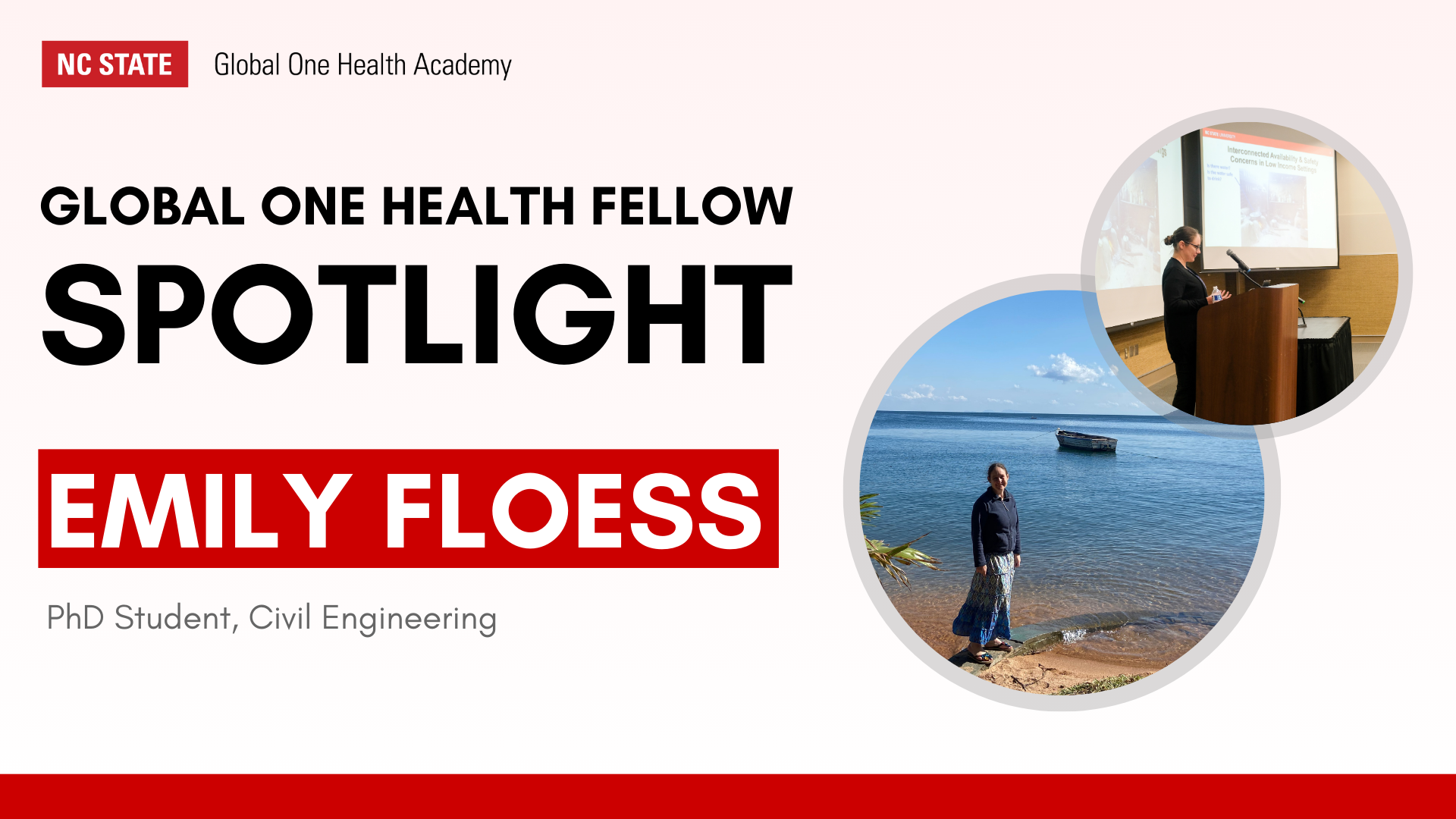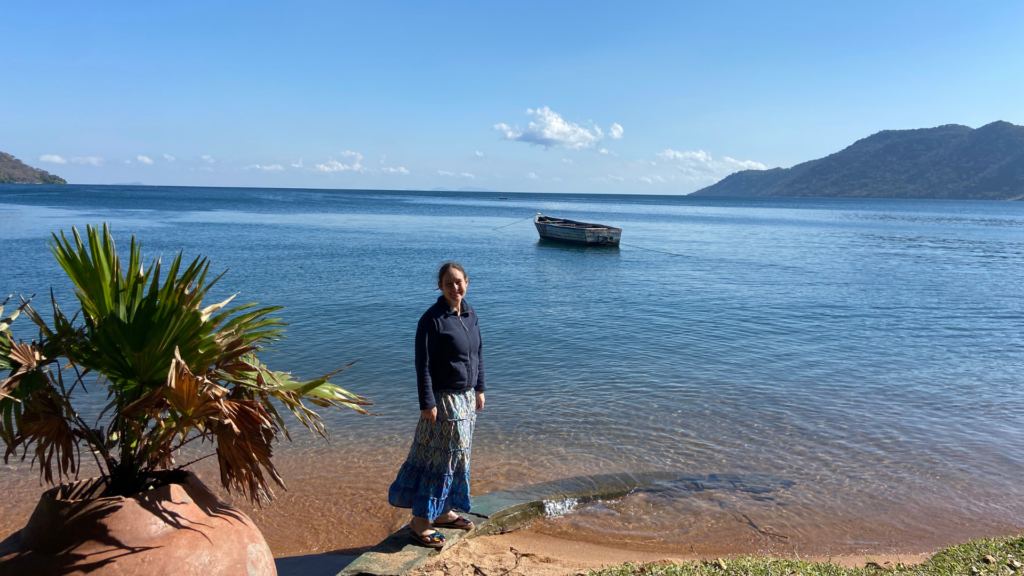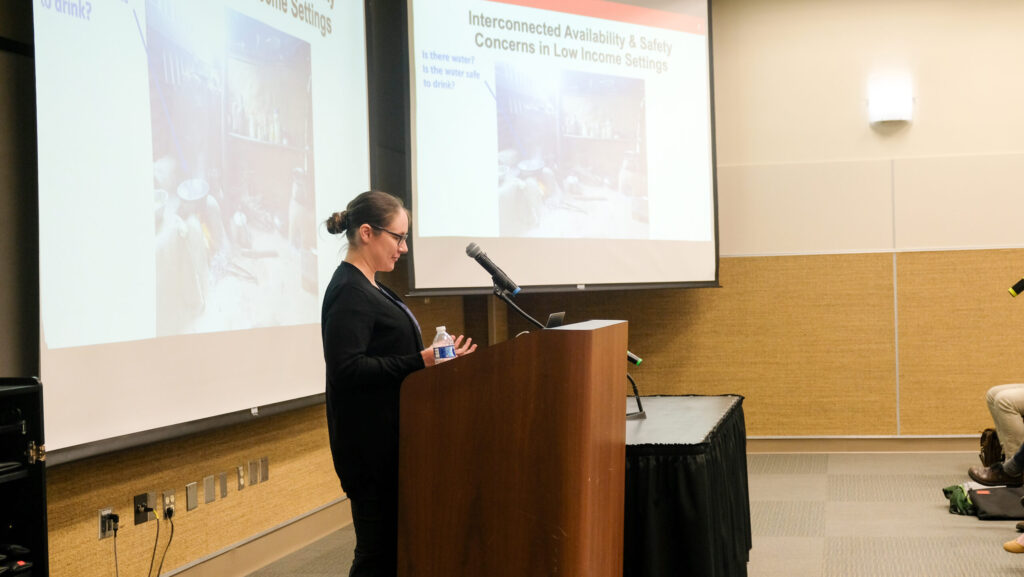Global One Health Fellow Spotlight – Emily Floess

Each year, the Global One Health Academy funds an exceptional group of graduate students with One Health related research interests. During their one-year appointment, the Global One Health Fellows are offered many opportunities, such as professional development workshops, networking with One Health professionals and more! Emily Floess was a member of our first cohort of fellows and was just recently in Malawi studying food, water, and energy security in the country. Learn more about Emily in her spotlight below!
What do you research?
My research primarily focuses on air quality and climate change. I also focus on intersecting aspects of environmental engineering, including drinking water and air pollution along with quantifying environmental tradeoffs through modeling and measurements. While serving as a Global One Health Fellow, I began a research project on food, water, and energy insecurity in Malawi. This project was funded by a Graduate Travel Award offered to me by GOHA.

What are the implications of your research, and how does it fit into the One Health framework?
Air pollution impacts all aspects of One health, including human, animals, plants, and the environment. Air pollution mitigation can have both health and climate benefits.
What/who inspired you to pursue this field of study?
The professor who funded my research when I started my masters degree was studying air quality, and it turns out air quality was a really good fit for me! I was always interested in weather and climate change, and I also had a B.S. in chemical engineering. Fortunately for me, there is a lot of chemistry involved in studying air quality. There is a large international and domestic field component which also fits my interests and background. I chose to stay in this area for my Ph.D. with Dr. Andy Grieshop. His background supports me as I pursue my Ph.D. in civil engineering focusing on energy access and transitions in developing countries, energy insecurity, and the intersection of WaSH and indoor air pollution interventions.
What do you view as a critical global challenge in One Health, and how could your discipline contribute to addressing it?
A critical challenge to One Health is pollution. By limiting pollution at all levels, we can limit instances of contamination that affect vulnerable communities. Within my research, I specifically focus on air pollution.
How has the Global One Health Fellowship helped shape your career trajectory?
I have always been interested in One Health, and the Global One Health Fellowship helped me to learn more. Through this opportunity I was able to pursue and explore projects of interest that I previously did not have funding for, such as this project in Malawi.

What was your favorite part of the Global One Health Fellowship?
My favorite part of the Global One Health Fellowship was meeting and connecting with my cohort and professors of all different disciplines.
What are your next steps?
I am TA-ing this semester, as a part of the Mentored Teaching Fellowship, and also working toward graduating some time in December or Spring. Currently I am finishing up two projects. One is in the final stages of revisions for a paper on the tradeoffs of boiling drinking water with solid fuels, and the other is on food, water, energy insecurity in Malawi.
Anything else you would like to share?
I really enjoy traveling and running and the outdoors, and I have a 20 month old daughter!